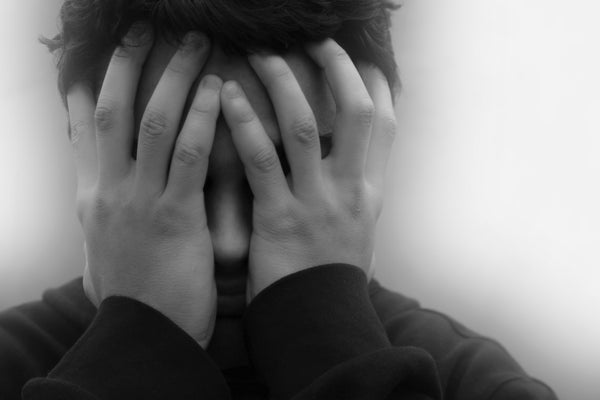
Anxiety and depression go together like peanut butter and jelly, peas and carrots, or bacon and eggs. And while they don't exactly taste great together, they often go hand in hand. In fact, nearly 50% of people diagnosed with depression can also be diagnosed with an anxiety disorder, and vice versa.
Depression and anxiety are fundamentally different—depression is based in hopelessness and helplessness, while anxiety is steeped in fear of the uncertain. But even though they’re different, they overlap in many ways. Here are five big similarities:
On supporting science journalism
If you're enjoying this article, consider supporting our award-winning journalism by subscribing. By purchasing a subscription you are helping to ensure the future of impactful stories about the discoveries and ideas shaping our world today.
Shared symptom #1: Irritability. Anxiety, by its very nature, puts people on edge, which makes it easier to push them over that edge. When you’re already amped up, every additional little thing seems like a giant hassle. With depression, it’s a myth that folks only feel sad. Instead, depression often manifests as irritability and grouchiness, especially in men.
Shared symptom #2: Problems sleeping. In depression, sleep can go either way—either too much or too little. Anxiety almost always means trouble getting to sleep due to tension or racing thoughts, or waking up in the middle of the night with a 100 MPH mind. Either way, when you’re fighting depression or anxiety, exhaustion is the last thing you need.
